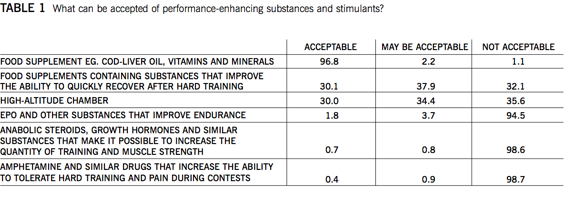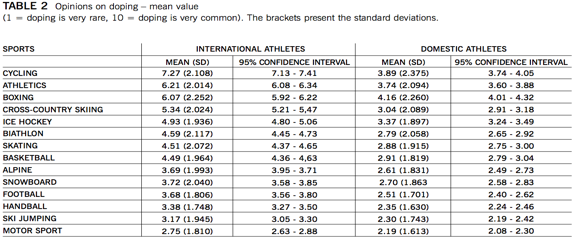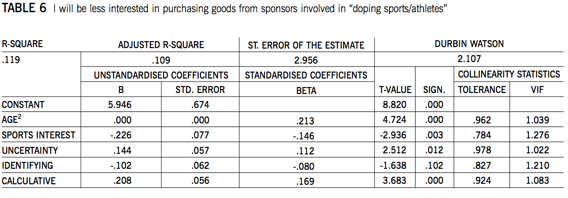Doping once again reared its ugly head in the sport of cycling this past month. Sir Bradley Wiggins, the undisputed champion and hero of British cycling, was marred by the revelation that he received a therapeutic use exemption (TUE) prior to key races at the peak of his success in road cycling. Wiggins catapulted British cycling onto the world’s stage by winning the Critérium du Dauphiné in 2011 and 2012 and most importantly becoming the first British Tour de France champion in 2012. Wiggins has also dominated on the track and in time trials in recent years. The Fancy Bears hackers revealed on September 14, 2016 that Wiggins received at least three legal injections of corticosteroid before key races to treat Wiggins’ asthma. The treatment in itself is legal if the athlete applies for the TUE, but the ethics of Wiggins and Team Sky, who he rode for at the time, has been called into question. Team Sky and Bradley Wiggins were not revealed to have explicitly broken any anti-doping rules, but the timing of the injections reflects poorly on a team that was founded on the principles of signing only clean riders. Whether or not allegations of doping or unethical actions are true, the brand of Team Sky has been shrouded in doubt and uncertainty. The question that will be discussed in this article is: do fans care about doping and does doping hurt brands?
Tainted Heroes Don’t Always Fall
In 2010, Norwegian Professors Harry Arne Solberg, Dag Vidar Hanstand, and Thor Atle Thøring published the study, “Doping in elite sport - do the fans care? Public opinion on the consequences of doping scandals,” in which they surveyed 925 Norwegians which were mainly comprised of men. The researchers found that fans were strongly opposed to the use of banned substances but less opposed to supplements and other recovery treatments (Table 1).

(Solberg et. al., 2010)
Fans consider cycling to be the biggest “doping sport” which can be attributed to the negative coverage surrounding several Tour de France winners in the past two decades. The negative view of cycling resulted in decreased sponsorship and ultimately the cancellation of the Championship of Zurich and the Tour of Utah in 2007 and the Tour de Germany in 2009. The data in Table 2 also shows that fans think less of international athletes that participate in doping than domestic athletes. Part of this can be attributed to national pride as well as the fact that there are not many Norwegian athletes that have been caught doping.

(Solberg et. al., 2010)
Ultimately, the researchers found through linear regressions that fans who thought poorly of doping were either older or less engaged fans. Younger and more dedicated fans were less likely to care about doping. Their interest in the sport superseded their dislike of doping. The data also showed that fans were likely to support their heroes even if they had been caught doping.

(Solberg et. al., 2010)
Data from America’s Pastime
Baseball is another sport deeply troubled by doping and the steroid era. Names like Alex Rodriguez and Barry Bonds are now synonymous with the use of illegal substances. CBS News and the New York Times conducted a poll in February of 2009 in which they found that 60% of individuals surveyed said it matters “a lot” if baseball players use steroid or other performance-enhancing drugs, 29% said it matters “a little” and only 9% said it matters “not at all.”
What This Means for Brands
What can be learned from these two studies is that all-in-all fans do not like doping. It is looked down upon and fans want to cheer for clean players. Yet, the die hard fans are not going to be deterred from enjoying their sport or rooting for their favorite player even if there is doping involved. It is in sponsors’ best interests to distance themselves from individuals caught doping, but, while negative, doping allegations are not a death sentence for an athlete or a sport. Being linked to doping will hurt Sir Bradley Wiggins and Team Sky’s rapport with the casual fan, but for the most part, dedicated supporters will stick with Britain’s cycling hero and weather another media storm. It is the hope of many supporters and riders that the sport’s governing bodies will make more defined and clear rules to prevent situations like this one from continually dragging the beloved sport of cycling into the doping spotlight.
Written by Grant Gardner
General Editor: Macy Marin
References
Cycling Weekly. (2011, May 28). Sir Bradley Wiggins: Rider Profile. Retrieved from http://www.cyclingweekly.co.uk/news/latest-news/sir-bradley-wiggins-rider-profile-72520
Davies, Mark. (2016, Sept 11). Sir Bradley Wiggins of Great Britain and Team Wiggins during the Tour of Britain 2016 stage 8, London. Retrieved from http://www.rexfeatures.com/search/?kw=bradley+wiggins&js-site-search_submit=Go&order=newest&iso=GBR&lkw=&viah=Y&stk=N&sft=&timer=N&iprs=f
Memmott, Mark. (2013, June 5). Do You Care If Ball Players Use Steroids? Polls Say Fans Do. NPR. Retrieved from http://www.npr.org/sections/thetwo-way/2013/06/05/188933226/do-you-care-if-ball-players-use-steroids-polls-say-fans-do
Rumsby, Ben. (2016, September 15). Sir Bradley Wiggins and Chris Froome given drugs exemption, new exposé reveals - as another 48 members of Team GB are targeted. The Telegraph. Retrieved from http://www.telegraph.co.uk/sport/2016/09/15/sir-bradley-wiggins-and-chris-froome-given-drugs-exemption-new-d/
Solberg, Harry Arne, Dag Vidar Hanstand, and Thor Atle Thøring. (2010, April). Doping in elite sport - do the fans care? Public opinion on the consequences of doping scandals. International Journal of Sports Marketing & Sponsorship, 11(3), 185-199. Retrieved from https://brage.bibsys.no/xmlui//handle/11250/170583
